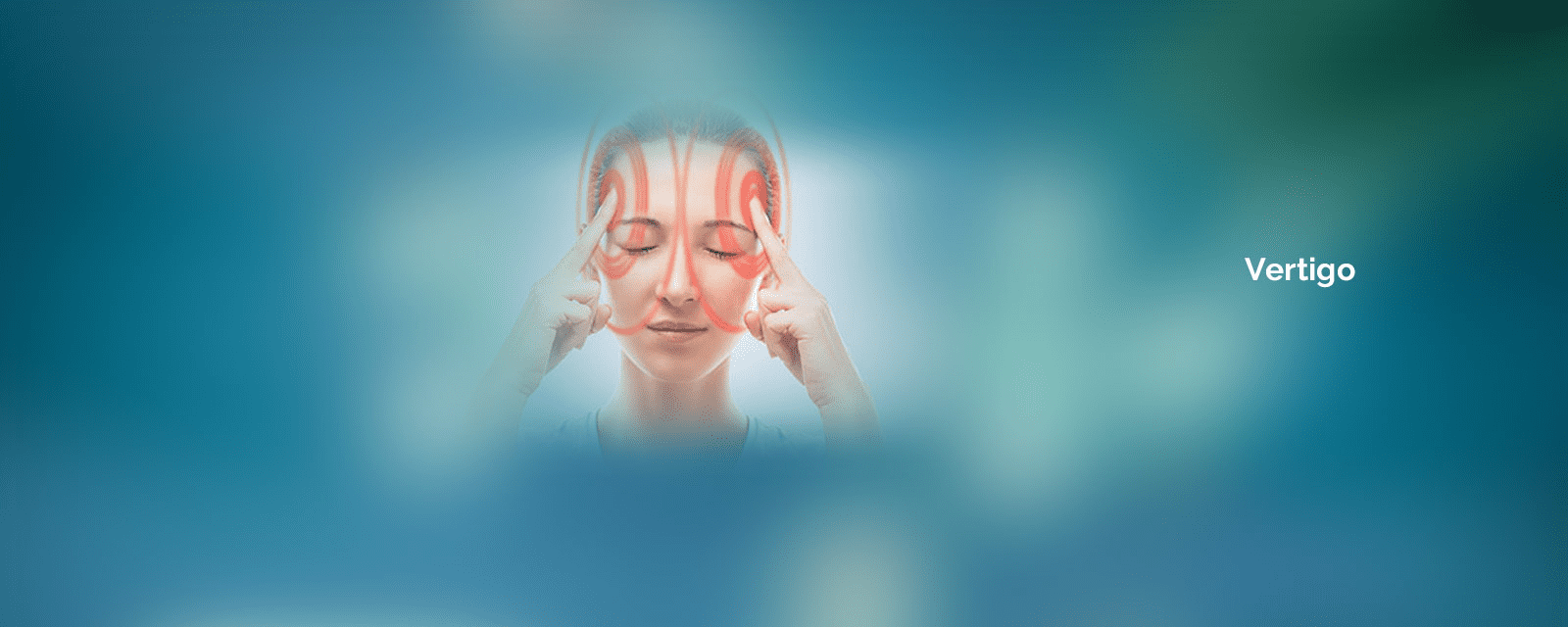Vertigo is a condition where the affected person experiences the sensation of feeling off-balance, or feeling movement of objects around them when there is none. This is associated particularly with great heights, or looking down from heights. Prevalence of Vertigo in India, came up to 0.71%, which amounts to more than 9 million people in a population of 1.3 billion. The majority of Vertigo patients are females. Vertigo normally affects adults after 20 years of age, with extremely rare cases reported in children.
People suffering Vertigo often experience the sensation of spinning, which is commonly associated with nausea and vomiting. Other symptoms include:
- Unsteadiness
- Falling
- Difficulty in walking
- Blurred vision
- Lowered level of consciousness
- Light headedness
- Nystagmus (abnormal jerking eye movements)
These symptoms might be persistent (occurring every now and then) or episodic (triggered by specific things). Generally any sudden change in the position of the head leads to such symptoms in people suffering from Vertigo.
When to see a doctor?
See a doctor if you or your loved ones experience these symptoms. Always trust premier medical institutions like Paras Hospital Groups which have specialized departments for the treatment and care of such conditions.
Causes and Risk Factors
Causes of Vertigo depend on its type. There are two types:
- Peripheral Vertigo: Caused by disturbances in the internal organs in the ear, which is collectively called the vestibular system which is responsible for maintaining the body’s balance.
- Central Vertigo: Caused by disturbances in the sensory nerve pathways of the brain.
There are several other causes like calcium deposition in the ear canals, bacterial infections in the ear or abnormal growths like polyps or tumours in the ear.
Risk factors of Vertigo include:
- Trauma to the head
- Specific medications like anti-seizure medications, blood pressure medications, antidepressants and even aspirin.
- For some people even alcohol can cause Vertigo
- Anything that increases your chances of getting a stroke, also increases your chances of developing Vertigo, like high blood pressure, diabetes, heart disease and smoking.
Treatment depends on the underlying reason that is causing the condition. In many cases, Vertigo goes away without any treatment, as your brain adapts to changes in the inner ear, but if it doesn’t, appropriate treatment should be undertaken:
- Vestibular Rehabilitation Therapy: Aimed at helping to strengthen the vestibular system.
- Canalith Repositioning Manoeuvres: Specific head and body movements done to move calcium deposits out of the canal (which might be causing the condition) so they can be absorbed by the body. These are guided by a physical therapist.
- Medications: Anti-bioticis required if the cause is a bacterial infection. Medicine might also be given to relieve symptoms of V
- Surgery: Might be required to remove polyps or tumours in the ear, which might be causing the condition.



 Call us at
Call us at